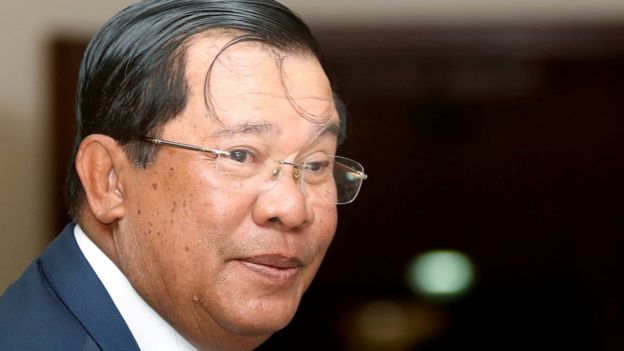By: Brian Kim
Impunity Watch Reporter, Asia
PHNOM PENH, Cambodia – The Supreme Court of Cambodia, on Thursday, November 16th, dissolved the main opposition party. The ruling banned the Cambodia National Rescue Party (CNRP), a 118-member party, from politics for five years. With elections coming up next year, Cambodia’s highest court eliminated the most viable challenger to the current administration.

Prime Minister Hun Sen’s government has alleged that the CNRP has colluded with foreign countries to overthrow the current administration. Mr. Hun Sen has ruled Cambodia for 32 years.
The chief judge of the Supreme Court, who is a high-ranking member of the governing party, stated that the opposition party has committed a serious crime and that “the party will be dissolved according to Article 38 of the Law on Political Parties.” The chief judge is also known to be close to Prime Minister Hun Sen. The opposition party is unable to appeal the decision.
In early September, Kem Sokha, leader of the CNRP, was jailed on charges that he conspired with the United States government to overthrow Mr. Hun Sen’s government. He could spend 15-30 years in prison. Moreover, Sam Rainsy, former CNRP leader, fled to France in 2016 after being charged with defamation. Since then, forty-four of the opposition party members have fled Cambodia.
Furthermore, in August, organizations such as, the National Democratic Institute and Radio Free Asia were shut down. Both were run by organizations in the United States.
This recent action by the Supreme Court of Cambodia is seen by many as an end to Cambodia’s democracy.
For more information, please see:
Aljazeera – Cambodia Supreme Court dissolves opposition CNRP party – 16 November, 2017
NYT – Cambodia’s Top Court Dissolves Main Opposition Party – 16 November, 2017
BBC – Cambodia top court dissolves main opposition CNRP party – 16 November, 2017
The Guardian – ‘Death of democracy’ in Cambodia as court dissolves opposition – 16 November, 2017



